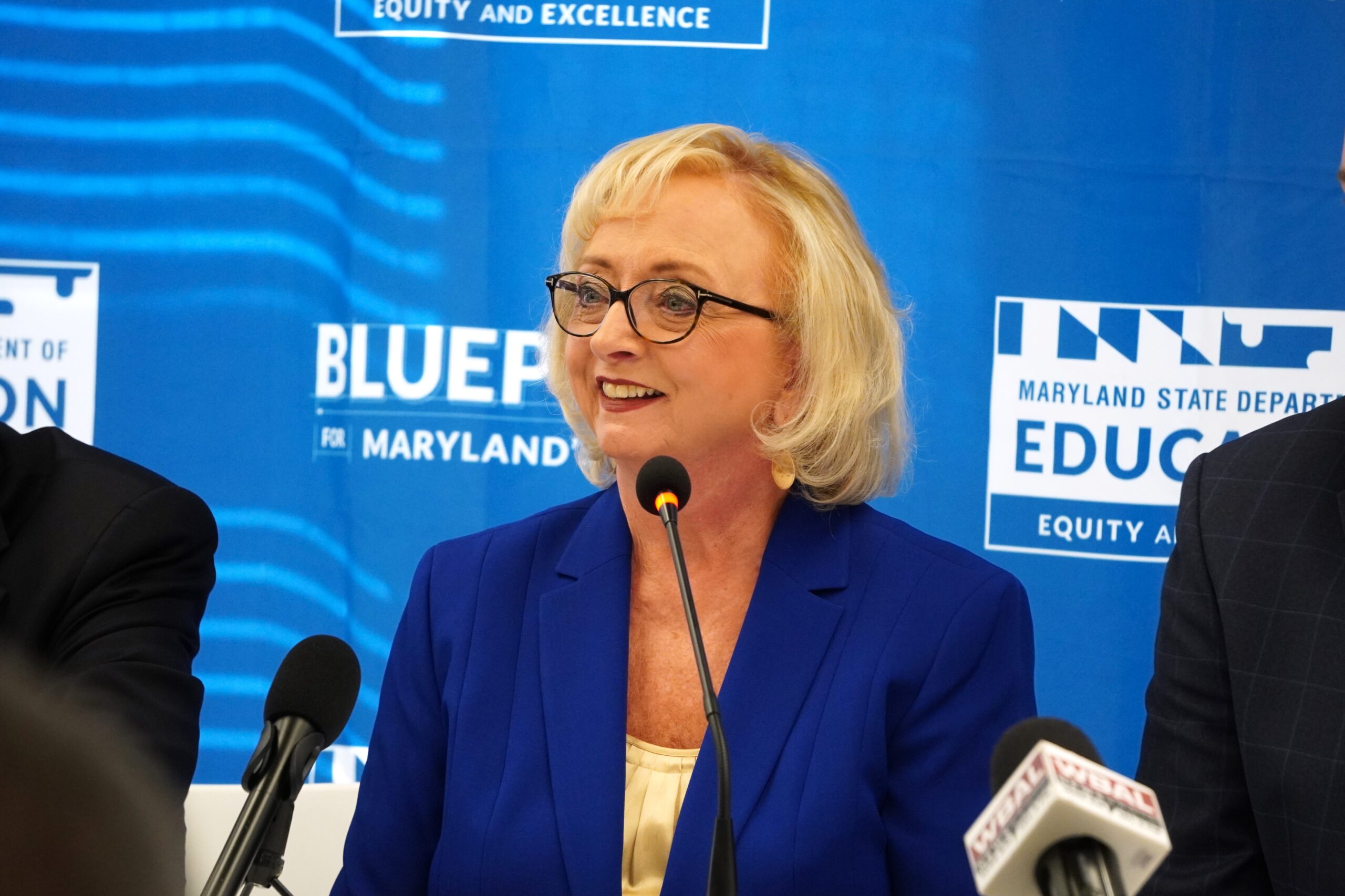
The future of the Blueprint for Maryland’s Future is in the hands of the next governor.
According to recent internal polls, the candidate who has, by far, the strongest education credentials — John King, the former U.S. secretary of education under President Obama — is well behind several other better known and financed candidates in the crowded Democratic field.
Otherwise, it’s hard to pick an education favorite. In forums, gubernatorial candidates are usually lobbed softball questions that are easy to knock out of the park, and the Democrats tend to trot around the bases in lockstep.
The one Democratic exception seems to be Peter Franchot who does not express support for the Blueprint on his campaign website and has indicated opposition to it in the past. On the Republican side, the main primary candidates, Kelly Schulz and Dan Cox, seem, at best, indifferent to the Blueprint and fixated on stoking the education culture wars.
Even candidates who support the Blueprint have been allowed to hide behind crowd-pleasing rhetoric, and so we don’t know where they really stand on the politically risky budget issues that lie ahead. Even their common pledge to fully fund the Blueprint is hard to pin down. Does that mean they will ensure revenues to pay for the $4 billion already committed through the end of the Blueprint in 2034? Or does it mean they will get behind the additional billions of dollars that education advocates say is necessary if the Blueprint is to live up to its world-class educational goals?
Another reason it’s hard to fathom who might be the best “education governor” is that in recent memory, Maryland hasn’t had one. No governor in at least a half century has made K-12 schools an all-out priority.
In the late 1970’s through early 1990’s, Maryland was a leader in the national movement for high state academic standards, testing, and accountability. That spanned several governors but happened because of the leadership of David Hornbeck and Nancy Grasmick, two dynamic (and long-serving) state superintendents, Walter Sondheim, who headed a commission calling for accountability, and Robert Embry Jr. a chair of the State Board of Education.
In 2002 Maryland earned top national grades for the Bridge to Excellence in Public Schools Act, based on the report of the Thornton Commission, that greatly boosted state aid, particularly for low-wealth districts. But the impetus came from a court decision in a lawsuit filed by the American Civil Liberties Union, and the legislation was powered by two General Assembly super heroes from Baltimore: Barbara Hoffman, chair of the Senate Budget and Taxation Committee, and Howard “ Pete” Rawlings, chair of the House Appropriations Committee.
Currently, Maryland’s nationally acclaimed Blueprint was forged by the Kirwan Commission and state legislators. Not only was there no gubernatorial leadership, but Gov. Lawrence J. Hogan Jr. (R) was a frequent opponent and the General Assembly had to override his veto of the Blueprint.
In the upcoming elections, what would it take for a candidate to emerge as the best hope to become Maryland’s first “education governor”? Here are test questions that should reveal what they know and are willing to do about some critical subjects that loom ahead.
• First and foremost, how will you raise the revenue necessary to pay for the current Blueprint funding through 2034? Funding is in place only through 2026 or 2027.
• On top of that, will you educate yourself about the gaps in the Blueprint as documented by education advocates, and commit to funding to fill the gaps? The most glaring omission is adequate funding for everyday school services, like class sizes, instruction in arts, music and physical education, pupil support services including nursing and counseling, and school security.
• Equally important, what will you do to ensure that the Blueprint funding is well spent? This involves your active support for effective and efficient implementation of the Blueprint’s sweeping reforms. It doesn’t mean you should micro-manage. The state superintendent is the educator-in-chief, not you.
But there are myriad steps you can take to aid the cause.
• Will you assure that higher expectations in the Blueprint are not watered down by often defensive interests, including local school systems and higher education. Will your appointees to the state board of education not be bound to such interests?
• Another raging issue is the school board wars. Will you use the bully pulpit and executive powers to tamp down the escalating board conflicts that politicize teaching and learning? Part of this involves resisting the trend toward elected boards which tend to sow disruption.
The test should single out one other fundamental issue that cries out for gubernatorial leadership. That issue will be decisive in enabling Maryland schoolchildren to succeed. And it’s no secret: Learning to read in the early grades is the gateway to academic success and a lifetime of opportunity. But for the most part, urgent action, even under the Blueprint and a variety of Maryland laws, lags.
• Will you, if the next governor, introduce as a first order of education business steps that, in effect, guarantee the “right to read”? Other states have stronger laws and programs than Maryland.
Wannabe governors must be put on the spot to specifically answer all of the above questions.
Then, voters must face their own test: Will we cast our ballots for the candidate who seems most able and willing to become an “education governor”? Schoolchildren are counting on us.




 Creative Commons Attribution
Creative Commons Attribution